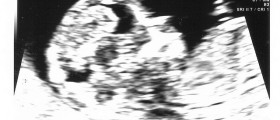
Non-miscarriage causes of vaginal bleeding
Did you know that bleeding is not all that uncommon during the first half of pregnancy? In fact, 20 to 30 percent of all women have some bleeding that is not a miscarriage. Pregnant women in their first trimester sometimes experience light spotting. You may have an implantation bleeding before your period shows up, but even after your period was due you may expel some old blood from your uterus. It is also possible that vaginal bleeding is caused by an irritated cervix, particular following sexual intercourse.
Bleeding as a miscarriage symptom
If you have started bleeding, and the blood is bright red, you are likely to be experiencing a miscarriage. Bleeding due to a miscarriage is likely to increase in volume quickly, and may contain clots and fetal material. Bleeding is rarely the only miscarriage symptom. If your bleeding is accompanied by menstrual-like cramps, this is another indication that you are in fact miscarrying. If you suspect that you are having a miscarriage, it is best to get in touch with your healthcare provider to confirm what is going on. Wear a menstrual pad and save any tissues that you expel if possible. This is particularly important for women who are suffering from a subsequent miscarriage, and who may be looking for causes of their miscarriage. Bleeding can also be caused by an ectopic pregnancy or a molar pregnancy. Though these are not miscarriages, they do require medical attention.
















Your thoughts on this
Loading...